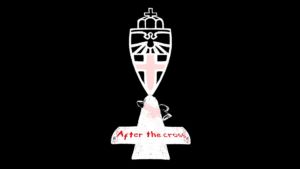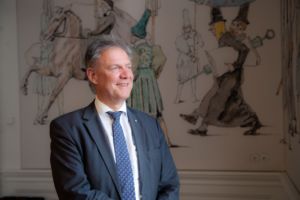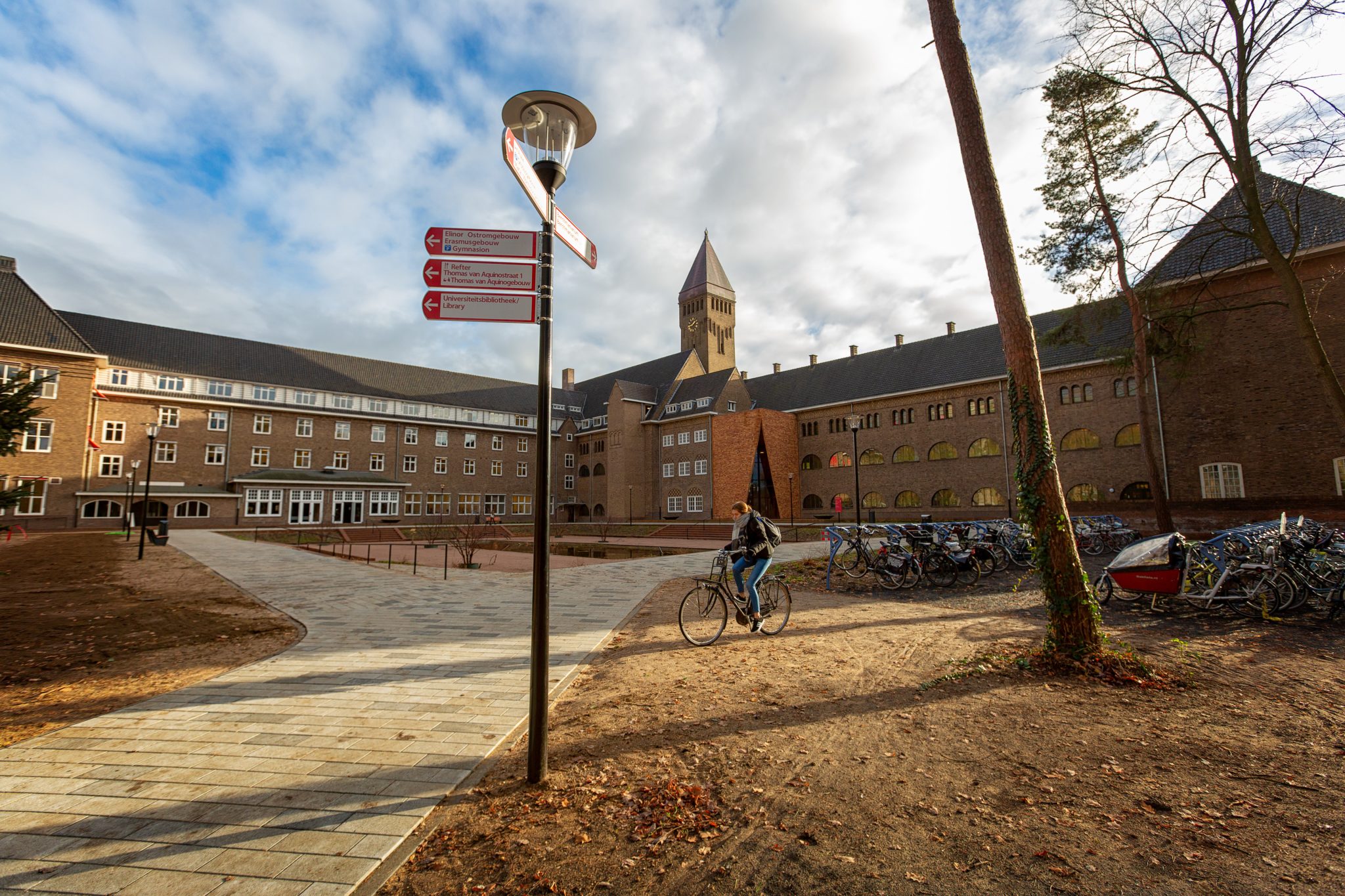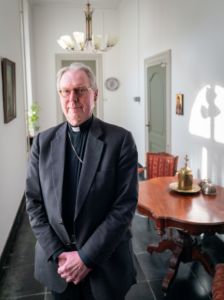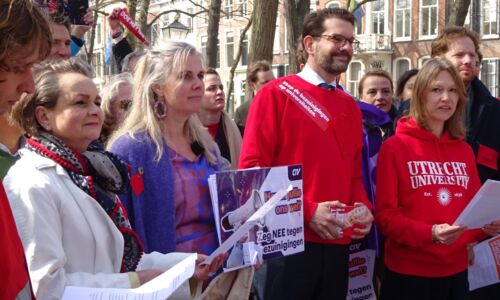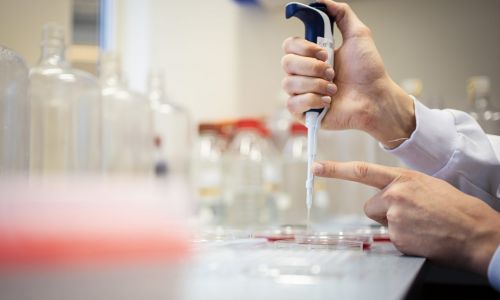Is contact with the church a thing of the past?
-
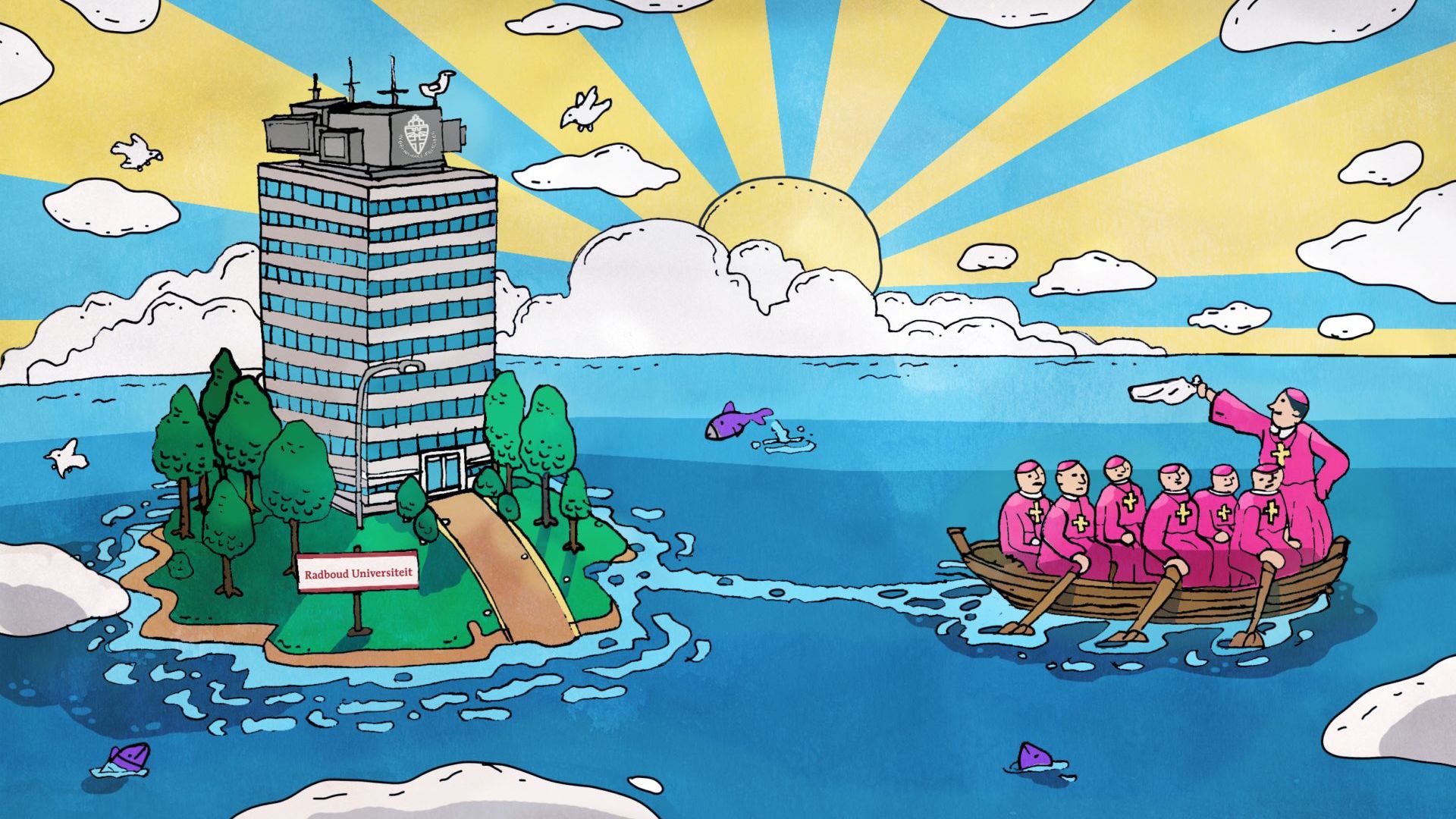 Illustration: Ivana Smudja
Illustration: Ivana Smudja
The formal ties between Radboud University and the Catholic Church may have been severed, but informally there are still many links between them. Will that continue to be the case in the future?
When the two parties were still closely associated, the bishops sometimes turned up at the Radboud University campus. During the annual working visit, for example, the schedule included lunch and discussions about Catholic identity with administrators from the university and Radboud university medical center.
Until a year ago, the bishops held a formal role in the management of the university: they appointed new members to the supervisory boards of Radboud University and Radboud university medical center. But after a long conflict between Radboud University and the bishops, this is no longer the case. The formal link between the church and the university has been severed.
Buildings and finances
Does this mean that the university and the church have less contact with each other? In a recent interview with Vox, Gerard de Korte, bishop of Den Bosch, confirmed that the relationship with the university has become less intense. ‘Because the bond is no longer institutionally guaranteed, it now depends on the goodwill and awareness of board members, students and professors.’
A year ago, Radboud University lost its ‘Catholic’ designation. What does that mean? What has changed since then? And where are we headed from here? Vox will be publishing a series of articles to answer these questions.
The current bishop of Den Bosch wants to maintain close contact with Radboud University, but this does not mean that his successor will. In contrast to De Korte, most of the Dutch bishops supported the decision to take away the ‘Catholic’ designation from the SKU (Stichting Katholieke Universiteit), the supervisory body of the university and Radboud university medical center.
On the Radboud University side, too, the contact with the church now depends on individuals. ‘It’s true that we no longer have a formal administrative bond’, says Rector Magnificus Han van Krieken. ‘But we still have a theological faculty and other Catholic institutions on campus. And I’m still in informal contact with the bishop of Den Bosch, most recently a month ago.’
The rector believes it is important to emphasise that there are two types of Catholic universities: those that fall directly under church authority and those that do not. ‘Radboud University has never been a church university’, he says. ‘Bishops only played an indirect role here, in the appointment of members of SKU that acted as supervisors, not in the appointment of Executive Board members. Only the Special Faculty of Theology has a more ecclesiastical role (see boxed text, Ed.).’
Affinity
Until recently, former vice president Wilma de Koning dealt with the Catholic Church dossier on the university’s Executive Board. She won internal and external praise for her knowledge of that dossier, but she no longer works in Nijmegen. Several Catholic employees on campus with whom Vox spoke are worried about her yet-to-be-appointed successor: will he or she also have an affinity with the Catholic Church?
‘It is not true that Wilma de Koning’s successor on the Executive Board will automatically be given the Catholic Identity portfolio’
At the moment, the rector is working with the director of the Honours Academy, Annemarie Hinten-Nooijen, to manage the Catholic identity dossier and the contacts with the church and Rome. ‘It is not true that Wilma de Koning’s successor on the Executive Board will automatically be given the Catholic Identity portfolio’, says Van Krieken. ‘If the newcomer has no affinity with the church dossier, there’s a good chance that it will stay with me.’
Book presentation
So, from an administrative standpoint, there is no longer any consultation between the church and the university. However, there are still many lines of communication between the two parties, especially through the Catholic institutions on campus. The connection is probably most obvious in the University Chaplaincy, where two student chaplains are members of the Catholic Parish Holy Spirit, as are two of the seven board members. ‘Naturally, I stay in good contact with Bishop De Korte’, says student chaplain Jos Geelen.
On behalf of the Special Faculty of Theology, Dean Carl Sterkens regularly converses with representatives of the church. ‘I have had discussions with almost all the Dutch bishops about our research plans and how things are going in the Netherlands’, he says. ‘And I am in regular contact with superiors of religious orders and congregations.’
Theological faculty awaiting recognition by Rome
A theological faculty at a non-Catholic university: is that not a contradiction in terms? No, says Carl Sterkens, dean of the Special Faculty of Theology. ‘Most theological faculties in Europe are, in fact, affiliated with non-Catholic universities. For instance, that is the case with all theological faculties in Germany except the one in Eichstätt. That’s also the situation in France, Austria, Switzerland, the Czech Republic, Slovenia, Croatia and many other places.’
The 2017 publication of Veritatis Gaudium, an apostolic constitution on ecclesiastical universities and faculties, stipulated that all theological faculties had to renew and submit statutes to the Congregation for Catholic Education within two years. That is exceptional because it only happens when the church’s legislative framework is renewed. That last occurred in 1979, and before that it had been much longer. ‘We drew up our statutes in coordination with other theological faculties in Europe and then submitted them’, says Sterkens. ‘Like those faculties, we are now waiting for a response.’
The submission of the statutes happened to coincide with the conflict between the bishops and the university’s Foundation’s Board. ‘Nevertheless, the Executive Board in Nijmegen decided to submit the statutes at that time. That is an indication that they value the bond with the church.’
Formally, the conflict with the bishops about the university is separate from the recognition of the theological faculty. ‘But the fact that the same actors are involved is obviously a complicating factor’, Sterkens concedes. ‘That’s why I don’t expect the Congregation of Catholic Education to issue a ruling on the statutes submitted by the Special Faculty of Theology as long as there is no final ruling from Rome on the status of Radboud University.’
According to Hans Krabbendam of the Catholic Documentation Centre, the contact between his institute and the church is still good, and has perhaps even improved since the university has ceased to be Catholic. ‘It’s no coincidence that we received the personal archives of Cardinal Simonis after his death’, Krabbendam says. And Bishop De Korte recently attended a book presentation by one of our colleagues.’
Religious institutes
The situation is different at the three Radboud University research institutes that were founded by religious orders. The Titus Brandsma Institute, the Nijmegen Institute for Mission Studies and the Institute of Eastern Christian Studies do not have formal links with the Church as an institution, but they do have links with the Conference of Dutch Religious Orders (KNR), the umbrella organisation of religious orders and congregations in the Netherlands.
‘For us, the relationship with orders and congregations is much more real than the relationship with the archdiocese’, says Herman Westerink, director of the Titus Brandsma Institute. ‘If TBI employees have contact with bishops at all, it is on a personal level.’
‘The missionary institutes that are important to us (see boxed text, Ed.) are somewhat more autonomous with regard to the archdiocese’, says Frans Wijsen, director of the Nijmegen Institute for Mission Studies. On a personal level, he has informal contacts with the diocese of Roermond. ‘And the patron of our organisation is Cardinal Peter Turkson. I have visited him several times and he has visited us here. He is very supportive of our institute.’
The Institute of Eastern Christian Studies was founded by the Congregation of the Assumptionist Fathers but it is not linked to the Catholic Church, explains institute staff member Alfons Brüning. ‘The bishop will know who we are, but he is less involved in our activities here.’
Making an appearance
Let us return to Bishop De Korte. He has said that he visits the Radboud University campus less often than he used to. ‘It’s a matter of making an appearance when I receive an invitation and I have space in my calendar.’
‘I eagerly await the outcome of the university’s identity process’
According to the bishop, the ball is now in the university’s court. Does it want to maintain contact with the church in the future? ‘I eagerly await the outcome of the university’s identity process’, he says.
That process, in which all Radboud University students and employees can participate, must be completed by the university’s centenary in 2023. Only then will it become clear what the future relationship between Radboud University and the church will be.
Affiliated institutes and their funding
Three Radboud University research institutes were founded by religious orders.
The Titus Brandsma Institute (TBI) is a university institute founded by Radboud University and the Carmelites, a religious order of sisters, brothers and lay people. It is a research centre for mysticism and spirituality. The institute is partly funded by the university, but also by fundraising, especially among religious orders. ‘The Carmelites have always granted dispensations to let several people conduct research at TBI’, says director Herman Westerink. ‘This is an indirect form of funding because those people are not paid by the university.’
The Institute of Eastern Christian Studies was founded in 1991 by the Congregation of the Assumptionist Fathers, an order of the Roman Catholic Church that was founded in 1850 in the southern French city of Nîmes. ‘One of the founders of this order wanted to bring Eastern Christians back into the Roman Catholic Church’, explains staff member Alfons Brüning. ‘But to do that, you have to get to know them first. This is the tradition in which we were founded. We are no longer focused on missions; now, we are only concerned with getting to know them better and facilitating knowledge.’
‘Our funding mainly comes from the Assumptionist Fathers. The KNR does not provide structural funding, but it does provide regular project-based funding. We get money for scientific research from scientific foundations such as the Dutch Research Council (NWO). We are permanent guests at Radboud University, where we are allowed to use spaces and facilities.’
The Nijmegen Institute for Mission Studies (NIM) was founded in 1992. It conducts research into on dialogue between Western and non-Western Christians and was founded by four groups: the Redemptorists, the Picpus Fathers, the Missionaries of the Company of Mary, and the Society of African Missions. NIM receives its funding mainly through its founders and other religious institutions. ‘Less than in the beginning but enough to keep a small institute going’, says director Frans Wijsen. ‘We also receive money from churches and private foundations.’
The Catholic Documentation Centre (KDC) was founded in 1969 to preserve all kinds of source material from Catholic individuals and institutions. ‘Most of the funding for the KDC comes from Radboud University, supplemented by funds from organisations that want something to be done with our heritage’, explains director Hans Krabbendam. ‘We also work with interns and volunteers who donate their time to us.’
The University Chaplaincy is housed at Erasmuslaan 9A. It is the pastoral service of Radboud University and HAN University of Applied Sciences. ‘During office hours, at least one student chaplain is available for individual conversations, and students and employees can use our silence and prayer rooms or our kitchen and garden’, says student chaplain Jos Geelen. ‘With our four student chaplains, we offer a varied programme in Dutch and in English, for believers and non-believers.’
The University Chaplaincy is funded by the Reinier Post Foundation, a foundation with old Catholic money managed by supervisors from Radboud University and Radboud university medical center. One purpose of the foundation is to finance activities about the Catholic identity on campus. ‘The Reinier Post Foundation pays the rent for the building and the salaries for the two Catholic student chaplains, the secretarial office and one musician’, says student chaplain Jos Geelen.
